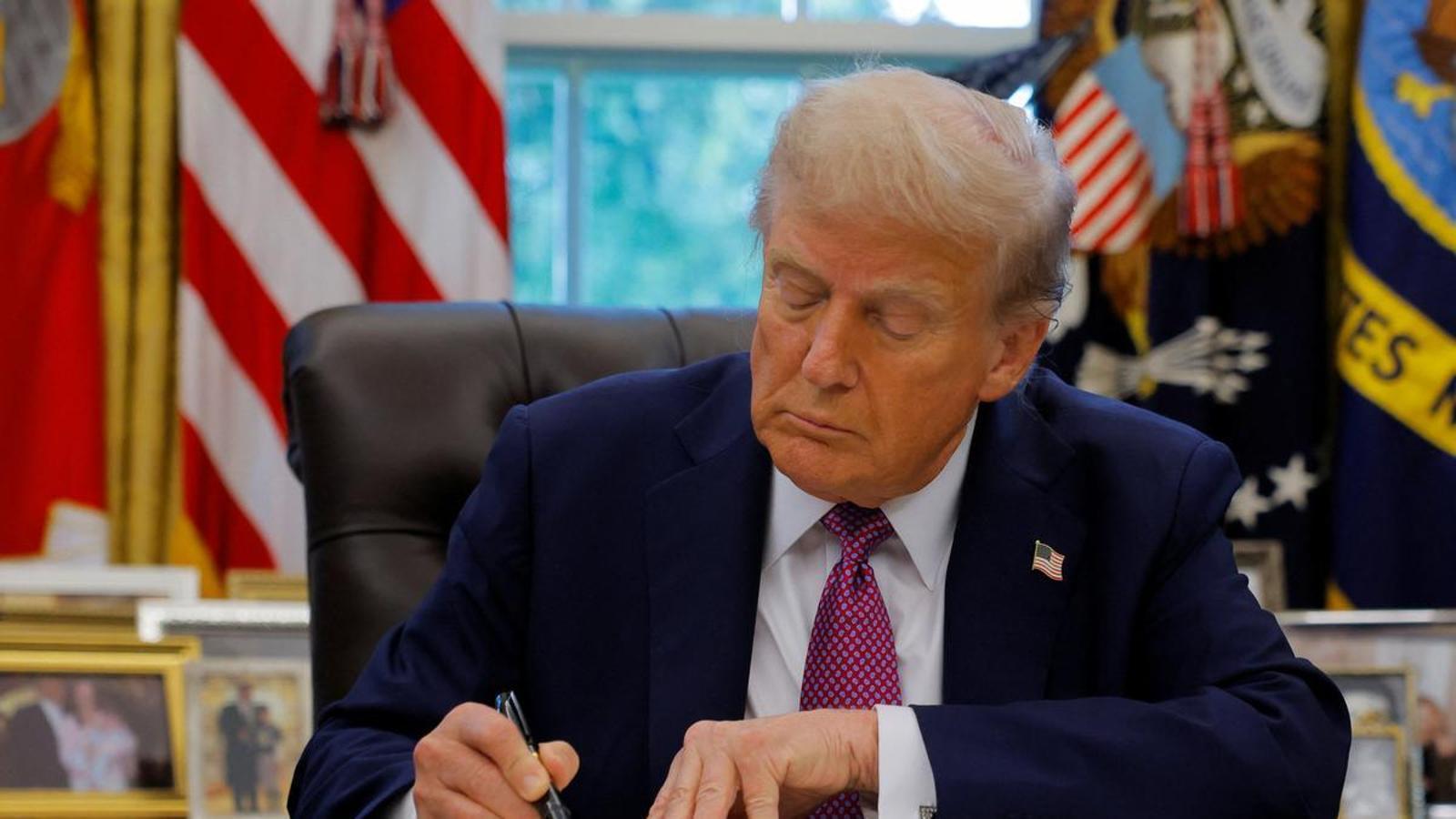Donald Trump announces he will declare the anti-fascist movement a terrorist organization.
The group is decentralized and without a defined leadership, making it difficult to predict how the US president's announcement will materialize.


WashingtonThe capitalization by Donald Trump The murder of far-right activist Charlie Kirk pointed in that direction. But no one anticipated that, in a matter of a week, it would end like this. The president once again demonstrates the lightning speed with which he locates the cracks in the democratic system and exploits them to further undermine it. This Wednesday night, Trump announced that he will declare the anti-fascist movement Antifa a terrorist organization. The classification is reminiscent of the dark era of McCarthyism, at best. At worst, it is channeling American society into a suffocating climate that increasingly resembles authoritarian regimes.
"I am pleased to inform our American patriots that I am designating Antifa, a sick and dangerous radical leftist mess, as a major terrorist organization. I will also strongly recommend a thorough investigation into those funding Antifa, in accordance with the highest legal standards and practices," the president wrote. where the state visit isIt remains to be seen what authority or power Trump will invoke to make this classification official and legal.
The announcement raises a series of questions, starting with the president's knowledge of the anti-fascist movement. The Antifa movement doesn't have a centralized structure, but rather an umbrella under which various left-wing groups and organizations come together. Without any defined leadership, it's difficult to know who or what will be susceptible to investigation and persecution. But it's precisely this lack of clarity that could give the Trump administration free rein to attack anything it deems appropriate, including, perhaps, groups or organizations that are financing Democratic Party campaigns. Blue Act, one of the major fundraising platforms for Democrats and currently under investigation for alleged irregularities, has long been in the spotlight.
A week ago, Kirk's murder marked a turning point in the country's polarization, but the shock wave was yet to be determined. Now, the classification of the political movement as a terrorist organization outlines its scope. Many of the activists linked to the antifascist movement in the United States are primarily responsible for tracking white supremacist groups.
During his first presidency, Trump already treated Antifa activists as if they were a specific group and not a movement. In 2017, activists from the movement were among the leaders of the protests against the white supremacist march in Charlottesville, Virginia. At the time, Trump was president and justified the white supremacist demonstrations by equating them with the anti-racist movement.
The campaign of terror that Trump launched against the migrant population has been spreading like an oil slick through all segments of society in recent months, reaching us here. The murder of Kirk, already anointed as a political martyr of Trumpism, has been the trigger for this new step forward. Just as the Department of Defense has been renamed the Department of War, it is now also openly targeting that part of the country that has always declared itself an enemy of Trumpism.
What began as a chase within university campuses, with cuts in funds under the pretext of alleged anti-Semitism, has now transformed into an open fight against the left where Trump does not hide his intentions to use the state machinery to persecute his political adversaries. The American president has already normalized bringing the army into the streets to resolve domestic issues, as seen with the militarization of Washington, and now he wants to point out and demonize progressive positions.
The Trumpist bases, with figures such as the influencer In the first days after the assassination, the ultra Laura Loomer - a close ally of Trump - were responsible for initiating a witch hunt and stirring up hatred against the left. An action that the president himself validated on the night of the shooting when, without even knowing the identity of the of the alleged murderer, Tyler Robinson, He already blamed "the radical left."
Over the weekend influencers Trump supporters like Loomer have taken to exposing anonymous people on social media, attaching names and photographs, accusing them of celebrating Kirk's death. Many of those singled out had posted comments critical of the activist's far-right rhetoric, which championed conservative Christian values and gun rights, while openly attacking the rights of LGBTQ+ people. This Wednesday's suspension from comedian Jimmy Kimmel's show for a comment on the identity of the alleged killer is the culmination of this spiral of harassment.
On Monday, Vice President JD Vance already anticipated the president's announcement during his appearance as a special guest on Charlie Kirk's podcast. From his office next to the White House, Vance said that the government would work "to dismantle the institutions that promote violence and terrorism in our country." Vance assured that the administration would act to achieve this in the coming months and would explore "all options to achieve real unity in the country and stop those who want to kill their fellow Americans because they don't like what they say."
The day after Vance spoke these words, Attorney General Pam Bondi promised that the Trump administration would attack anyone who uses "hate speech" in relation to the murder of Charlie Kirk. By hate speech, Bondi understood positions that contradicted Kirk's tenets or that identified him as a far-right activist. Hours after this statement, Bondi posted on social media that "hate speech that crosses the line into threats of violence is not protected by the First Amendment. It is a crime."
For years, Trumpism has taken refuge in the First Amendment—which defends freedom of expression—to make statements that could be classified as hate speech. For example, at the start of the 2024 election campaign, Trump said that migrants "pollute the blood of the country."
